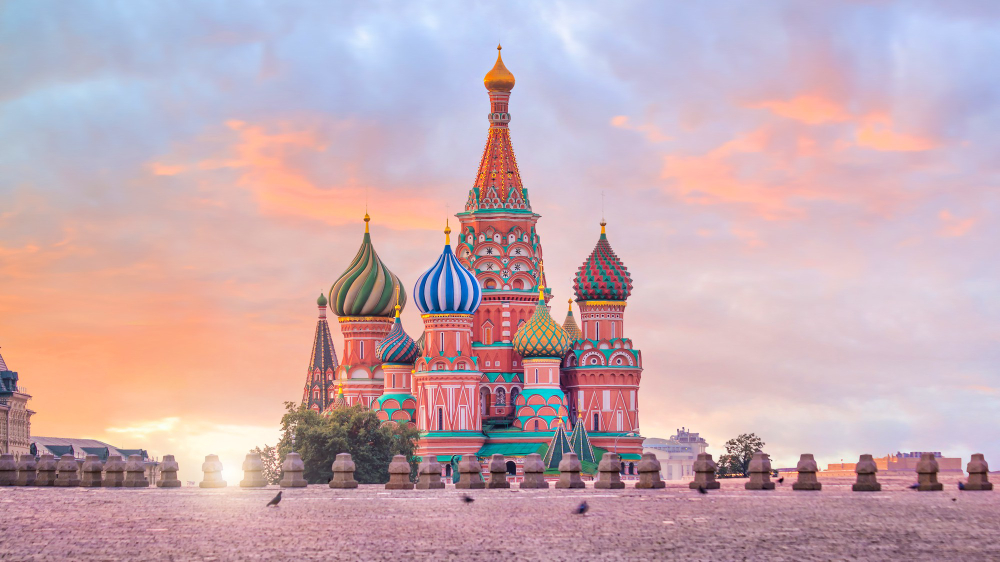
Russia is emerging as a growing hub for medical tourism, offering patients from Europe, Asia, and the Middle East access to high-quality healthcare services at competitive prices. With its vast territory, advanced medical infrastructure in key cities like Moscow, St. Petersburg, and Kazan, and a strong tradition of medical science and research, Russia presents an attractive destination for a wide range of treatments. Patients are drawn to Russia not only for affordability but also for its medical expertise, innovative technology, and culturally respectful healthcare environment.
Russia’s legacy in medical education, particularly in fields like oncology, cardiology, neurology, and fertility treatment, has been cultivated over decades. Today, modern Russian clinics blend this expertise with cutting-edge diagnostic tools, robotic surgery, and international patient services. Governmental support and increased private sector investment have fueled a rapidly growing healthcare ecosystem aimed at international standards. For patients seeking top-tier treatments in a culturally rich setting, Russia offers a compelling alternative to more expensive Western healthcare options.
Russia is particularly well-regarded for advanced cancer treatments, fertility services (including IVF and surrogacy), ophthalmology (such as LASIK and retinal surgeries), and complex cardiac and neurological surgeries. Cosmetic and dental procedures—especially maxillofacial surgery, veneers, and implants—are also widely sought after due to their affordability and skilled execution.
Other popular services include spinal surgeries, orthopedic procedures, addiction treatment, and anti-aging therapies, often provided in multidisciplinary clinics that bundle services, accommodation, and interpretation support. Costs are often 40–70% lower than in Western Europe or North America, without compromising quality. Russia also stands out for its therapeutic spas and sanatoriums, offering integrated post-treatment wellness and rehabilitation in picturesque natural settings.
Doctors in Russia are highly trained, with many holding postgraduate certifications from European institutions. While not all healthcare staff are fluent in English, top-tier hospitals catering to international patients provide multilingual support and concierge-level services.
Russia is accessible through major international airports such as Sheremetyevo (Moscow), Pulkovo (St. Petersburg), and Kazan International Airport. Direct flights from Europe, Asia, and the Middle East make travel relatively straightforward. Many travelers can apply for a visa online (e-visa) for select regions, or obtain one via a medical invitation letter provided by the treating hospital.
Leading clinics provide dedicated international departments, often arranging airport transfers, local transportation, accommodation booking, and interpretation services. English, Arabic, and Chinese translators are commonly available at institutions targeting global patients. Special dietary needs, religious accommodations, and female care teams can typically be arranged upon request.
Russia’s cultural richness—from the Bolshoi Ballet to historic Orthodox churches—along with its natural retreats and therapeutic spa towns like Sochi and Kislovodsk, provide a calming backdrop for recovery and recuperation.
The Russian healthcare system is overseen by the Ministry of Health of the Russian Federation. Major hospitals providing care to international patients are often accredited by national or international standards bodies. While JCI accreditation is less common than in Western destinations, many facilities have ISO certifications or local equivalents that enforce strict quality and hygiene protocols.
Patients are protected under Russian health laws, which emphasize informed consent, privacy, and legal rights. In cases of malpractice or dissatisfaction, patients have access to both hospital-based grievance mechanisms and civil legal recourse.
Follow-up care is supported through digital platforms, allowing patients to continue consultations after returning home. Many hospitals also provide rehabilitation services or partner with sanatoriums and wellness centers, ensuring that recovery is integrated into the full care journey.
Russia is steadily becoming a top-tier choice for medical tourists seeking high-quality, cost-effective, and culturally adaptive healthcare. Whether for elective procedures like cosmetic surgery or advanced interventions like oncology, Russia combines scientific excellence with affordability and human-focused care. For international patients, it offers a uniquely enriching medical tourism experience—backed by strong clinical credentials and a warm cultural welcome.
1. Why choose Russia for medical tourism?
Russia offers advanced medical care at lower costs than many Western countries.
2. Which treatments are popular in Russia?
Cancer care, fertility treatments, eye surgery, cosmetic procedures, and orthopedics.
3. Are doctors in Russia well-qualified?
Yes. Many are highly trained, with international certifications.
4. Is English spoken in Russian hospitals?
In top private hospitals, yes. Interpreters are also available.
5. How much can I save on treatments in Russia?
Up to 70% compared to the U.S. or Western Europe.
6. Do I need a visa to visit Russia for treatment?
Yes, but many regions accept e-visas or medical invitation letters.
7. Are Russian hospitals safe and accredited?
Major hospitals follow strict standards and some have international certifications.
8. Can I get support during my stay?
Yes. Clinics often offer airport transfers, translators, and hotel booking help.
9. What cities are best for medical treatment in Russia?
Moscow, St. Petersburg, Kazan, and Sochi are top destinations.
10. Is follow-up care available after returning home?
Yes. Many hospitals offer remote consultations and digital reports.